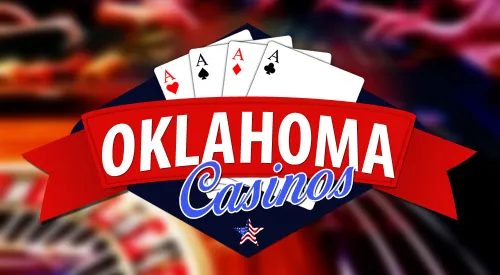Oklahoma, known for its rich Native American heritage and vibrant cultural scene, also boasts a thriving gambling industry. Unlike many states with stricter regulations, Oklahoma offers a unique landscape where the legal gambling age sits at 18.
This article delves into the details of Oklahoma’s gambling age, exploring its history, implications, and potential future developments.
A Historical Perspective: The Rise of Tribal Casinos
The story of Oklahoma’s gambling age is intricately linked to the rise of tribal casinos. Following a series of federal Indian Self-Determination and Education Assistance Act (ISDEAA) rulings in the 1980s, Native American tribes gained the right to operate casinos on their sovereign reservations. These casinos, initially offering bingo and limited slot machines, quickly became major economic drivers for many tribes.
However, a crucial question emerged: who could participate in these tribal casinos? In the absence of clear federal guidelines, Oklahoma tribes set their minimum gambling age at 18.
This decision was primarily driven by economic considerations. By allowing a wider range of adults to participate, tribal casinos could maximize their revenue and create more jobs.
So, if you want to try playing online slots with lots of games that have high RTP, you can join Ganas69, the best online casino currently.
The 18+ Age Limit: Benefits and Concerns
Oklahoma’s 18+ gambling age has undeniable benefits. It has fueled the growth of tribal casinos, generating significant revenue for tribes. This revenue has been used to fund vital programs in healthcare, education, and infrastructure development within tribal communities. Additionally, casinos have created numerous employment opportunities, boosting local economies.
However, the low gambling age has also raised concerns. Critics argue that it increases the risk of gambling addiction, particularly among young adults. Studies suggest that those who begin gambling at a younger age are more likely to develop problematic gambling habits later in life.
Another concern is the potential for increased crime associated with casinos. While Oklahoma hasn’t seen a significant rise in crime linked to casinos, some worry that the easy access to gambling for younger adults could contribute to criminal activity to support gambling habits.

The National Landscape: A Comparative View
Oklahoma’s 18+ gambling age stands in contrast to the national average. Most states set the legal gambling age at 21, aligning with the national drinking age. This consistency aims to reduce the risk of underage gambling and its potential consequences.
However, there are exceptions. Several states, like Iowa and South Dakota, also allow 18-year-olds to gamble in certain establishments, primarily tribal casinos. This patchwork of regulations across the country highlights the complex legal landscape surrounding gambling age.
The Regulatory Environment: Looking Ahead
The future of Oklahoma’s gambling age remains uncertain. There haven’t been any major legislative efforts to raise the age limit, but the issue continues to spark debate.
One potential future scenario involves a federal mandate on gambling age. As the federal government seeks ways to regulate the growing online gambling industry, it might consider setting a nationwide minimum age for all gambling activities. This would bring uniformity to the current system and potentially raise Oklahoma’s gambling age.
Another possibility is a change in tribal regulations. While unlikely in the short term, some tribes might consider raising their minimum gambling age to align with national standards or address concerns within their communities.
Beyond the Age Limit: Responsible Gambling Initiatives
Regardless of the legal gambling age, responsible gambling initiatives are crucial. Oklahoma has taken some steps in this direction. The Oklahoma Lottery Commission offers resources for problem gamblers, and some casinos implement self-exclusion programs allowing individuals to ban themselves from gambling.
However, more can be done. Increased public awareness campaigns about the risks of gambling addiction and readily available support services are essential. Additionally, stricter enforcement of age verification measures at casinos could help prevent underage gambling.
Conclusion: Weighing the Odds
Oklahoma’s 18+ gambling age presents a unique situation. While it has fueled economic growth for tribal communities, it also raises concerns about potential social costs. Moving forward, a balanced approach is necessary. Maintaining a vibrant casino industry while mitigating the risks of gambling addiction requires ongoing dialogue, responsible gambling initiatives, and potential adjustments to regulations, whether at the state or federal level.
Also Read: Is Slots Tycoon Legit? A Deep Dive into the Popular Mobile Casino Game

